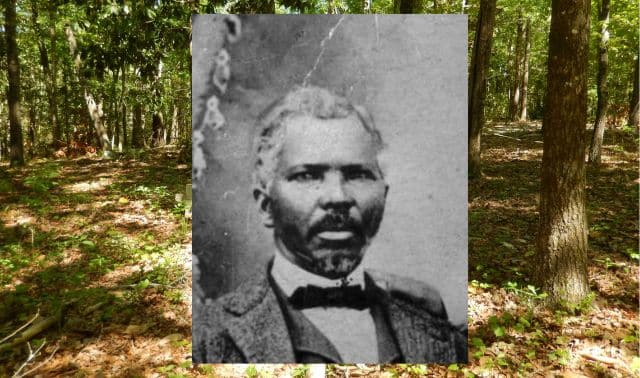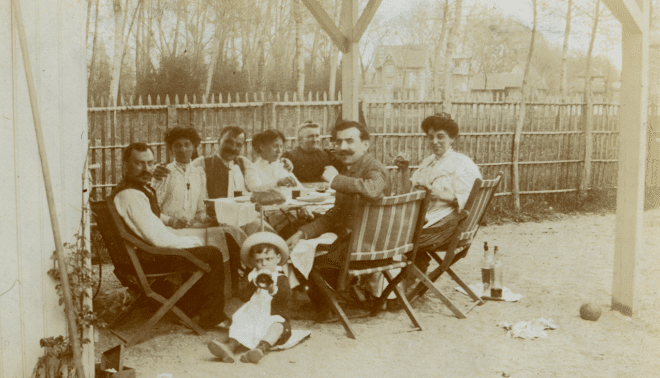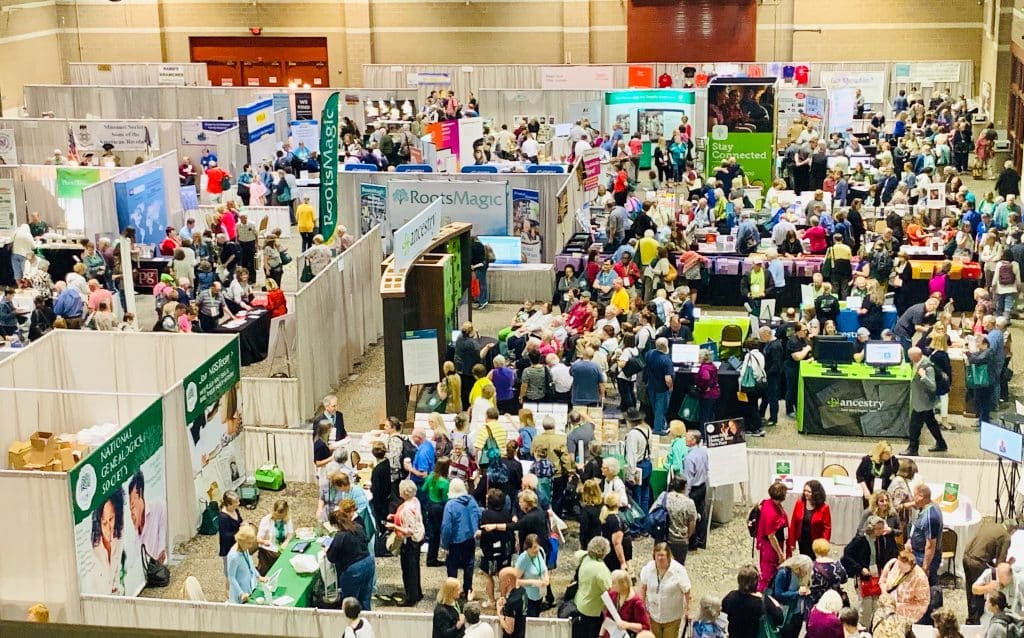
In the summer of 2019, two genealogy groups announced plans to merge: the Federation of Genealogical Societies (FGS) and the National Genealogical Society (NGS).
NGS has been championing genealogy scholarship and education since it formed in 1903, and FGS launched in 1976 to help societies grow and thrive. Though each group served distinct needs, their communities often overlapped. The organizations sometimes found themselves duplicating efforts or competing for the same audiences, resources and volunteers.
On 1 October 2020, FGS was officially absorbed into NGS. A “new NGS” emerged with a dual mission: to support both individual genealogical enthusiasts and the societies to which they belong. By joining forces, NGS and FGS aim to serve their members more efficiently and more powerfully. The merger took more than a year of planning, much of it carried out amidst the COVID-19 pandemic.
I recently caught up with a few members of the NGS leadership team. As of this writing, they are still ironing out logistics and future plans. But they have a clear message for genealogists across the United States: Join a society. They say that, just as NGS and FGS are more potent together, so is the entire genealogical community when it unites in numbers large or small.
Here are five compelling reasons to seek out societies and join the right one(s) for you.
1. Become a Better Researcher
Most societies, including NGS, make skill-building a top priority. Back in 1903, genealogists weren’t known for careful research methodology. The fledgling NGS set out to correct that. Over the succeeding decades, it published the first national journal of genealogy (National Genealogical Society Quarterly); co-created the Board for Certification of Genealogists; and sponsored major teaching and research experiences.
“Our classes have been the gold standard for a long time,” says Kathryn Doyle, NGS’ president. “Today, genealogists come to us with a variety of backgrounds and education. The pathways on our website (for beginners, intermediate and advanced learners) help you navigate to what you need at your level.”
She mentions the society’s popular American Genealogical Studies courses and periodicals NGS Quarterly (for advanced researchers) and NGS Magazine (for genealogists at a variety of levels).
The annual conference is still NGS’ flagship educational experience. That’s how Terry Koch-Bostic, NGS Education and Communications Chair, discovered NGS. “I was working full-time and didn’t have the time to join a local society,” she says. But then she saw a flier for an NGS conference, and decided to attend.
“When I saw the full spectrum of lecture topics, it was game over!” she says. “I’ve seen many people have that experience. Conferences are important to genealogy, even if we have to do them virtually sometimes.”
Locality-based societies usually offer a different kind of learning: frequent, group-based (in-person and/or virtual) events that cater to local communities. Many host monthly speakers. Some host special interest groups on DNA, specific ethnicities, family history software or other topics. Societies centered on specific ethnicities help you celebrate and learn to research African, Jewish, Germanic or other roots.
Specific perks and resources vary by society, so you’ll need to explore those on their websites. Find societies of interest by Googling appropriate terms (think Hart County Georgia African American) or search at the NGS website under Societies & Organizations > Find a Society.
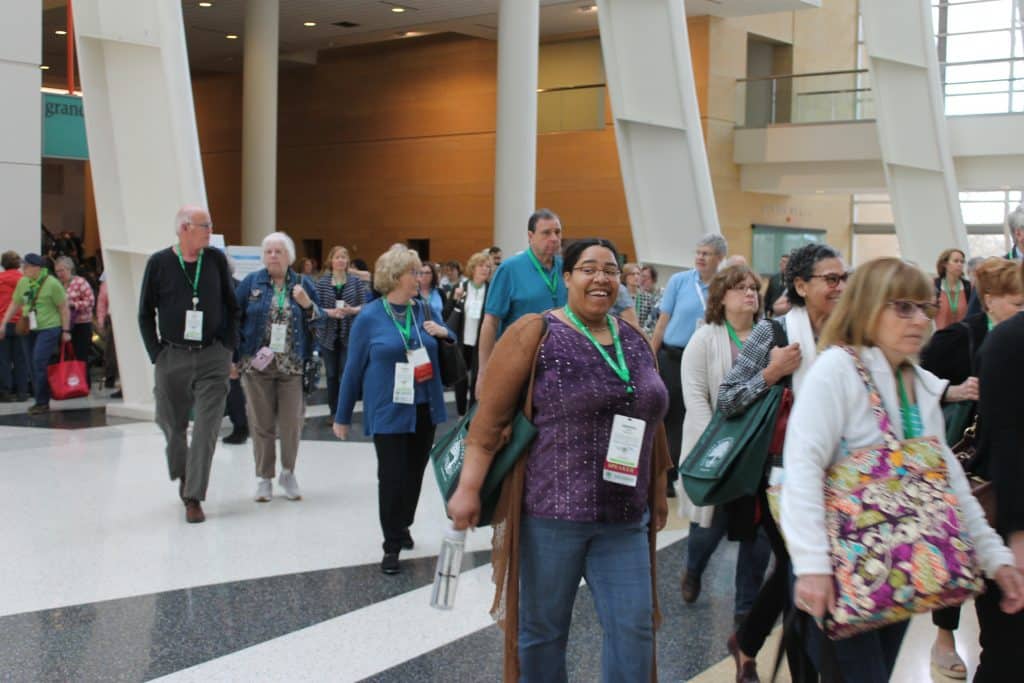
2. Hang Out with Genea-Friends
It’s hard to fully appreciate the benefits of joining a society until you experience them. “I was a ‘solo genealogist’ until I met our local society president by chance, and it opened up an entirely new world to me,” says Doyle. “I made like-minded friends who were just as crazy about this as I am and who live near me. They introduced me to new record types and fantastic experiences like research trips.”
Matt Menashes, NGS executive director since 2019, has spent his career running associations. “Group activities are part of the human experience, and that’s what societies provide: chances to learn, collaborate, socialize [and] share common interests,” he says.
One of Menashes’ tasks is to build more meaningful online social experiences for NGS members. “We’re hoping to build a network of special interest communities on our website so our members can have group conversations on topics of shared interests, like methodology or a specific family line,” he says. “There will be opportunities for micro-volunteering [pitching in on a small or limited scale].”
Some state, ethnic and local societies have social media accounts, though some are more active than others. Consider finding a society of interest on Facebook. Introduce yourself with the share-something-and-ask-something approach. For example: “I’m posting a cool picture from a Johnson family wedding in Hart County in 1914. Does anyone recognize the church in the background?”
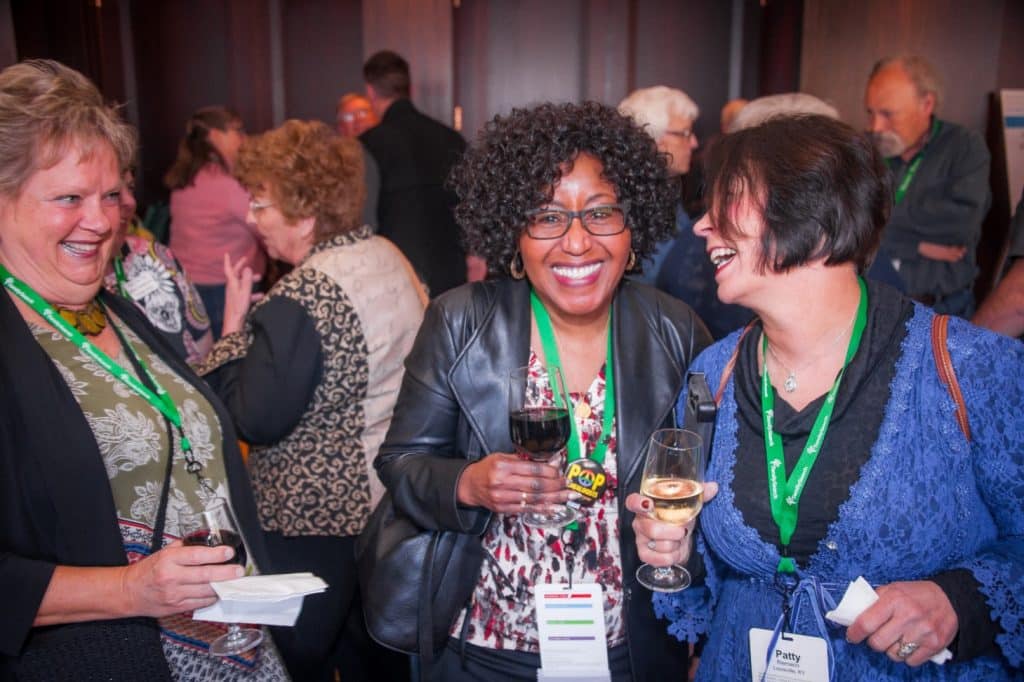
3. Discover Records—Or Help Preserve Them
Society members in places where your ancestors lived often know about local records. And over the years, they may have preserved, catalogued and transcribed unique resources. (Indeed, many honorees on our annual list of the 75 Best State Websites list are run by societies.) Societies specific to ethnic heritage often discuss records pertinent to their members, too.
Even if you can’t join in person, membership can increase your access to this collective knowledge. Societies may have newsletters, publications, correspondence or members-only sections on their websites. You may be able to request local record lookups or copies or hire help to find obituaries, photographs, neighborhood maps, school records, church registers and other gems.
On a national scale, NGS (and the former FGS) also help find and care for key record collections. “FGS contributed so much, from early indexing projects to the War of 1812 Preserve the Pensions project,” says Doyle. That latter project raised a record-setting $3 million between 2010 and 2016. “All of that is [FGS’] legacy and part of our mission now,” Doyle says. “Digitization is still ongoing and we’re talking about the next project that will continue under the new NGS.”
As a society member, you will likely be invited to help preserve records through dues or donations. You may encounter opportunities to help digitize documents (if you’re local) or create indexes to them. These efforts may or may not benefit your own research directly, but “paying it forward” makes more records available to everyone over time.
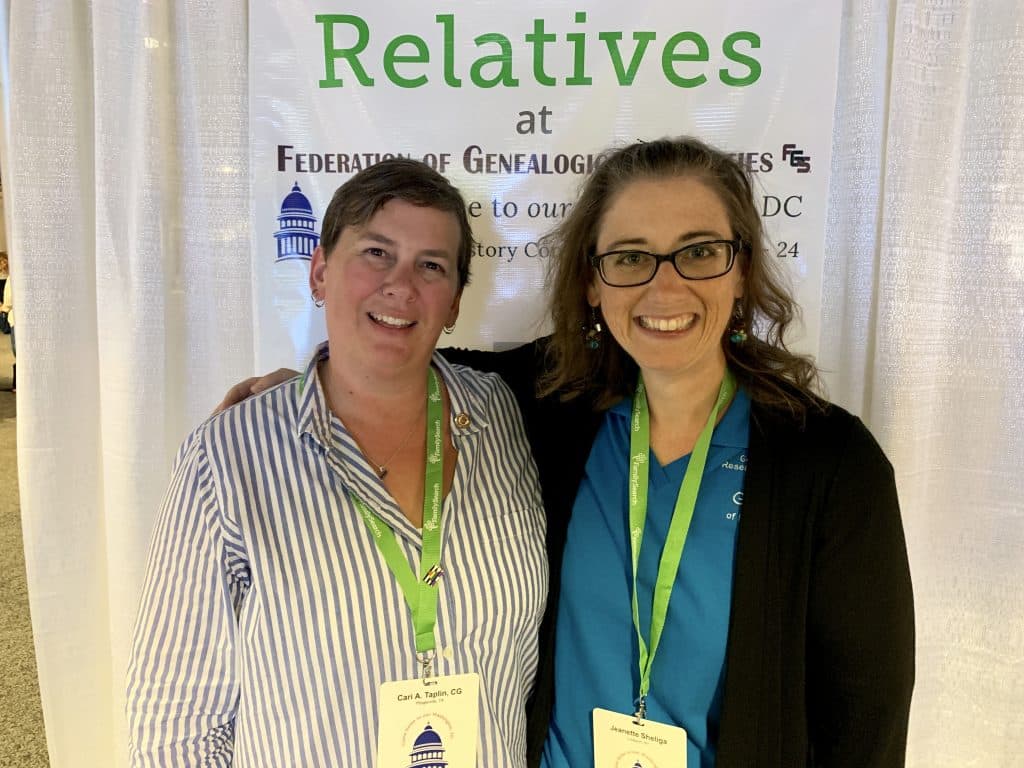
Society members Jeanette Sheliga (right) and Cari A. Taplin (left).
4. Advocate for Genealogy
“One of the questions I hear frequently is whether we as an organization should be engaged in advocacy and public policy,” says Menashes. As someone who has worked in Washington, DC for years, he answers with an emphatic yes.
After all, few groups care more about legislation and policies affecting records preservation and access than do genealogists. But their voices must be raised together—loudly—to have serious impact. “We’re keeping an eye on what the state and federal governments are doing,” he reports. “We’re bringing the interests of thousands of genealogists and hundreds of societies to the attention of national leaders and groups.”
NGS participates in a Research Preservation Access Coalition (RPAC). In 2020, RPAC took swift action to protest unlawful proposed restrictions to New York City public records. The group supports ongoing efforts to reduce unreasonable waiting periods for vital records access. On occasion, they invite individual genealogists to sign petitions and give testimony.
Koch-Bostic also reflects on a related need to advocate for funding for genealogy and history societies. “In a lot of areas of our country, many nonprofits are going out of business,” she says. “Given the economy, this is really an urgent time to help support these societies.”
5. Help Grow the Genealogy World
The NGS website states that its ultimate goal is to “assist people of all cultures in connecting their families to the past and for the future.” Now that NGS represents a variety of specialty and ethnic organizations, too, an emphasis on “all cultures” is even more relevant.
“As NGS President, Kathryn has established our first diversity, equity and inclusion working group,” says Menashes. “We’re looking at everything from the language of genealogy to the opportunities we provide across ethnicities and for other communities. This is the single biggest issue we can face as an organization. How can we make sure we are open and inclusive of people no matter their backgrounds?”
Individual genealogists can—and do—help people they know get started in family history. But group efforts will likely contribute most powerfully to full inclusion. Identifying and surmounting barriers to enter genealogy takes time, expertise, effort and sometimes money. Local societies, niche societies and NGS all have roles to play, as do the skill sets and community connections of many individuals. But societies need the robust support of members to do so.
If you find these motivations compelling—education, sociability, record resources, advocacy and the growth of the genealogy community—it may be time to start shopping around for a society that fits you. Follow some on social media and join their conversations. Consider joining one (or more) for a year and investing in membership dues. As you connect with genealogy communities, you may find yourself agreeing with NGS: There’s power in numbers.
Contributing Editor Sunny Jane Morton is a member of NGS and the Ohio Genealogical Society.
A version of this article appeared in the March/April 2021 issue of Family Tree Magazine.





